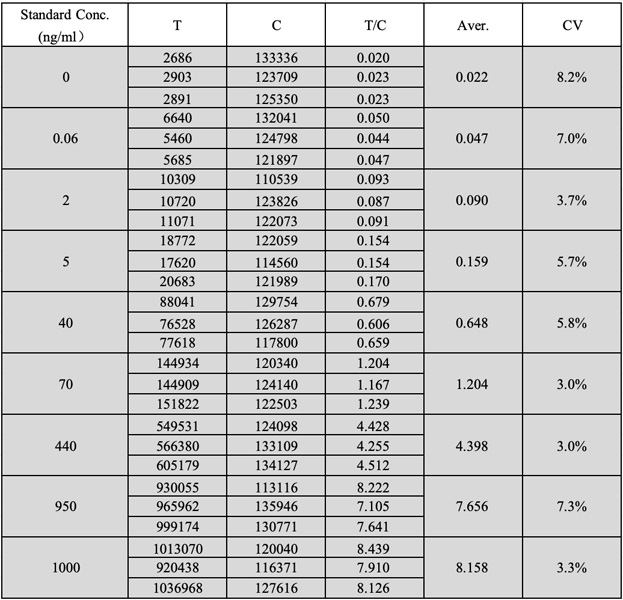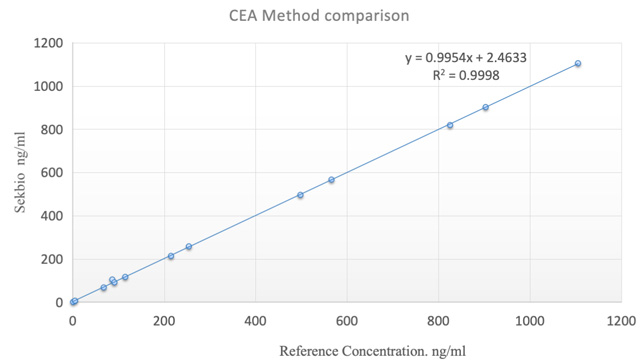CEA
Introduction
Carcinoembryonic Antigen (Colorectal Cancer, CEA), also known as Carcinoembryonic Antigen-Related Cell Adhesion Molecule 5 (CEACAM5), is a tumor-associated antigen extracted from colorectal cancer and embryonic tissues, with a molecular weight of 180~200 kDa. CEA belongs to the immunoglobulin superfamily and is a member of the cell adhesion molecule family. In the normal mucosa of the intestinal tract, trace amounts of CEA are synthesized in goblet cells and columnar cells, existing in the form of a glycoprotein coat on the cell or microvilli surface. After shedding, it is excreted with feces and does not enter the capillaries. However, in the case of dysplasia or malignancy in the colonic mucosal epithelium, there is a significant increase in both intracellular and extracellular CEA, reaching several times or even tens of times the normal levels.
Clinical Significance
As a broad-spectrum tumor marker, CEA is currently widely used in the detection of gastrointestinal cancers, especially colorectal cancer. Colorectal cancer is a common malignant tumor of the digestive system in China, and early non-invasive diagnosis is challenging. CEA has a sensitivity and specificity of 36% and 87%, respectively, in the diagnosis of colorectal cancer. It plays a crucial role in the treatment, prognostic assessment, monitoring of recurrence, and evaluation of treatment response.
Clinical Diagnostic application
1) Colorectal cancer, staging of colon cancer (Duke staging), and other digestive tract tumors.
2) Benign diseases such as intestinal inflammation, renal insufficiency, colonic polyps, and liver cirrhosis.
1 Limit of detection (Fluorescent test)

Its sensitivity is as high as 0.06ng/mL
2 Method Comparison (Fluorescent test)

Antibodies pair of CEA are available from Sekbio

- Cardiac Markers
-
Tumor Marker
-
PGII
-
G17
- CA50
-
CA125
- CA242
-
CA15-3
- CA19-9
- CA72-4
-
Pepsinogens I (PGI)
-
Human Epididymis 4 (HE4)
- Prostate-Specific Antigen (PSA)
- Squamous Cell Carcinoma (SCC)
- Neuron-Specific Enolase (NSE)
- Cytokeratin 19 Fragment (CYFRA21-1)
- Human Progastrin-releasing Peptide (ProGRP Tumor Marker)
- Protein Induced by Vitamin K Absence or Antagonist-II (PIVKA II Tumor Marker)
- Alpha-fetoprotein(AFP)
-
CEA
-
Human Chitinase 3-like 1
-
PGII
- Inflammatory Marker
- Infectious Disease
- Hormones
- Thyroid Function
- Glucose Metabolism
- Bone Marker
- Others
-
Heterophilic Blocking Reagent
- Animal Diagnostics

















